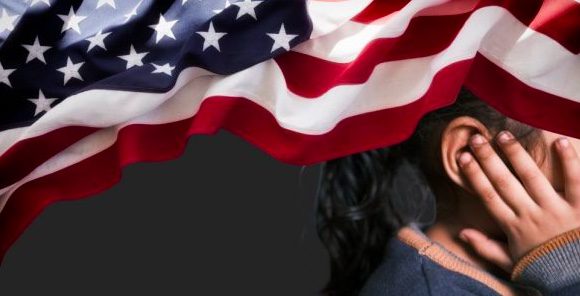
Why is America still ignoring the problem of child marriage
At just 11 years old, Brigitte Combs’ mother found her a husband—a 26-year-old man devoted to the Hare Krishna movement. Living in Los Angeles, Combs wasn’t allowed to attend school and was expected to marry young. To Comb’s relief, the man backed out, disturbed by her age. But when Combs was 13, her mother arranged another match—this time to a 37-year-old.
At 14, she was married in a religious ceremony and pregnant shortly after. When she was seven months along, her parents took her to the county courthouse to legalize the marriage. “Do you want to do this?” the judge asked. “You’re both willing?” Combs recalled wanting to scream, “No, no, I don’t. Do something!” But she had no choice but to answer “yes.”
In California, children of any age can marry, “as long as at least one parent and a judge approve,” writes Nicholas Kristof in an opinion piece for The New York Times.
By 17, Combs was raising two children while living trapped on a Hare Krishna farm. “Life was hell,” she said. Lawyers refused to help a child, and even women’s shelters turned her away for being underage. At 18, she ran away and lived on the streets. Two years later, she finally obtained a divorce.
The survivors who lived it
Sheena Renea’s story, too, is a warning. Married at 15 to a 20-year-old in Missouri, she sought safety but found violence. “I wasn’t old enough to get a restraining order; I wasn’t old enough to go into a domestic violence shelter,” she said. “I also wasn’t old enough to get a lawyer.”
When her husband’s abuse escalated, Renea’s despair turned fatal. At 17, Renea’s friends killed her husband, and authorities charged Renea with first-degree murder. She spent 25 years in prison.
I wasn’t old enough to get out of marriage. But I was old enough in the state of Missouri to face the death penalty.
Today, Renea runs Show Me Justice for All, advocating for prison reform and the end of child marriage. “A man lost his life,” she says. “I lost my life in prison. We left an array of victims behind us.”
Why do some states still defend child marriage?
Despite bipartisan progress, resistance persists. Conservative lawmakers often argue that parents should decide, especially within religious communities emphasizing “no sex before marriage.” Some fear that banning underage marriage could lead to more abortions.
On the liberal side, opposition in California has come from branches of Planned Parenthood and the American Civil Liberties Union. In a joint letter, the organizations wrote:
We are concerned that such a ban could drive young people who are already in abusive relationships further underground … [and] about the consequences for those young people who willingly enter a marriage.
To which Kristof counters:
To me, this position veers into liberal self-caricature and underscores how well-meaning people can be out of touch with those they aim to protect. Spend time with girls who have actually been married young, and you don’t find plucky teenagers … you find scared girls pushed into marriages that, researchers have found, disproportionately end in divorce.
Fraidy Reiss, founder of Unchained at Last—and herself a survivor of a forced marriage—called California’s opposition “mind-boggling and devastating.” “It feels like a slap in the face and a stab in the back at the same time,” she said.
